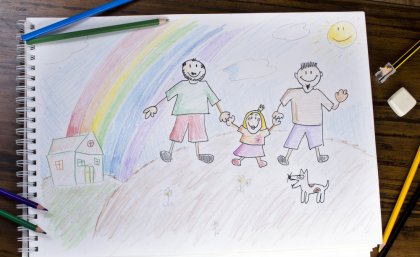
Same-sex couples with children have a particularly high preference for being married, underpinned by a desire for acceptance and security, researchers from The University of Queensland have said.
Dr Sharon Dane and Associate Professor Barbara Masser from the School of Psychology revisited findings of their nationwide 2010 study Not So Private Lives as Australia’s Federal Parliament met to debate a marriage equality bill.
“After surveying more than 2000 same-sex-attracted Australians, we found that being married was a greater preference than any other form of relationship,” Dr Dane said.
“That was irrespective of whether the person was young, middle-aged, male or female, university-educated or not, living in a rural area or in the city.
“The diversity among same-sex-attracted people wishing to marry runs counter to the argument that the desire to marry among this group relates to only the ‘city elite’.
“While all these groups preferred to marry, it was those who were already raising children that had the highest preference.
“Given it is already legal for same-sex couples to be in a relationship and to have and raise children, the only difference will be that these children will be able to say that their parents are married if the law is changed.
Dr Dane said research and analysis confirmed that same-sex-ttracted people’s attitudes towards marriage varied little from the general community.
“The desire among heterosexuals to marry was paralleled in the same-sex community,” Dr Dane said.
“One thing the data revealed was that same-sex couples felt that Australians in general did not consider their non-married relationships to be equitable to those who were married.
“This finding was of particular importance, given it was also shown that same-sex-attracted individuals who experienced greater acceptance from the heterosexual community also had higher levels of psychological well-being.”
Although participants in the UQ study were Australian citizens, significant numbers were from non-British cultural backgrounds, including Aboriginal and Torres Strait Islander, German, New Zealand, Italian, Chinese, Dutch, Greek, Indian, Filipino, Russian and Lebanese backgrounds.
Media: Dr Sharon Dane +61 0403 895 268, s.dane@psy.uq.edu.au ; UQ Communications Robert Burgin +617 3346 3035, +61 0448 410 364, r.burgin@uq.edu.au .
.jpg)

